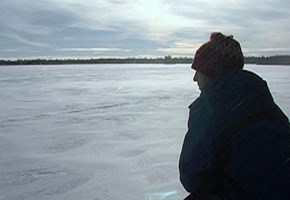BY HEIDI
ULRICHSEN
Before the Northern Ontario School of Medicine (NOSM) opened in
September 2005, Laurentian film studies professor Hoi Cheu was
asked to make a short film documenting the school's first
year.
He set about his task, diligently bringing his small digital
video camera to NOSM events.
But it wasn't until he started interviewing some of the 56
medical students in the charter class and visiting their
friends and family that he realized there was potential in
their powerful stories.
He decided to also make a longer film as part of a research
project.
Cheu spent countless hours talking to the students about their
experiences and following them in their first year of medical
school. During the summer of 2006, he edited the recordings,
arranging them artfully and adding a soundtrack.
The result is a 45-minute-long film called High Hopes. There
will be two screenings of the film Thursday, Dec. 14 at 3 pm
and 5:30 pm in room 107 in the medical school building at
Laurentian University.
DVD copies of the film are on sale for $15 for the general
public and $10 for students.
"I was with one of the students, Alexander Anawati, and he took
me to Sturgeon Falls to meet his high school principal," says
Cheu.
"The principal there met with me, and he said, 'We are
struggling through this program called 1616...They want to get
students reaching the age of 16 to get 16 credits. You can
imagine how difficult the situation is in a remote area like
this to get students to study.
"From this moment, I knew the film has to focus on the
students. It has to be cut for schools like this one in
Sturgeon Falls to show to students."
Arguably the most powerful story in the film is that of Lana
Potts, an aboriginal medical student from a northern Manitoba
reserve.
Her mother died in a car accident when she was 22, and she was
left to care for her much-younger brother and sister.
The woman went on to attend nursing school, and a friend told
her about NOSM. At first, she didn't want to apply because she
thought native people didn't go to medical school.
For her, getting into medical school meant she'd be able to
take care of her family and eventually, her community.
Potts, who attends NOSM in Thunder Bay, originally didn't want
to participate in the film.
Another student dragged her to see the professor, and she told
her story. Later, she pulled out of the project, but Cheu made
a rough cut of her interview and showed it to her.
"She came out crying. She said, 'You can't imagine how much you
forget.' It brought back the moment of joy and the pain and
emotion of where she was when she started medical school. She
gave me a hug."
For more information, about the film screening or DVD sales,
phone Yonaniko Grenon at 662-7243.
